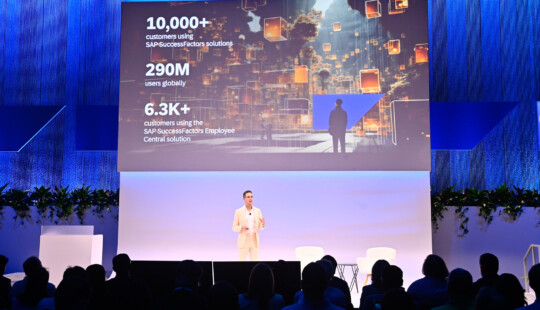Organizations are emerging from the pandemic to more fully become social enterprises, promising workers greater belonging without compromising individuality, job security through reinvention, and new opportunities from uncertainty.
Drenched in a paradox that combines technology with the human experience, these were three major findings from the 2020 Deloitte Global Human Capital Trends survey of 9,000 business and human resources (HR) leaders worldwide.
“This data gives us cause for hope because it shows that the greater value comes with the fusion of technology and humanity in the world today,” said Kristin Starodub, principal at Deloitte Consulting LLP. “Organizations that embed purpose, potential, and perspective into the DNA of who they are and how they operate have the opportunity to bring a human focus to everything they touch. This will empower people to be productive with technology, creating lasting value for the workforce and the organization.”
Unlike traditional organizations, social enterprises aim to balance revenue growth and profits with support for the communities in which they exist. HR has a clear role in building worker resilience across these new enterprises for a competitive business advantage.
Positive Change Happens When People Unite for Shared Purpose
While employee well-being was the top ranked workforce trend in this study, most organizations have not taken full advantage of this opportunity. For example, 80 percent of survey respondents said that worker well-being was important or very important for company success over the next 12 to 19 months, yet only 12 percent felt ready to address that issue. In a heightened environment of rapid change, organizations need to move beyond managing employees for maximum productivity to greater adaptability. This shifts HR’s role to provide both human and technologically driven support.
“People are actually highly adaptable to change when organizations provide them with a sense of purpose, community, and care,” said Steve Hunt, chief expert, Work and Technology, SAP North American Innovation Office. “Organizations need to equip HR and front-line managers with experience management and employee listening tools to understand workers’ experiences, as well as a suite of connected human capital management solutions that allow them to create a culture that supports people dealing with an ever-accelerating pace of change.”
It is not enough to merely ask employees questions during annual surveys. Organizations needs to ask the right questions at the right moments, using embedded analytics to understand and quickly act on what employees are experiencing. This kind of pulse-taking moves beyond anecdotal, averaged feedback to actionable insights about individual workers and their managers.
Reinvent Workforce Development to Unleash Potential
Fifty-three percent of survey respondents said that between half and all their workforce will need to change their skills and capabilities in the next three years. Instead of anchoring business and HR strategies in what is known about the capabilities of their existing workforce, organizations need to look ahead and find ways to develop every worker’s true potential.
“We should be cautious about building HR programs or processes that are influenced by demographic variables that employees have no control over, like age,” Hunt said. “Bias affects everyone to some degree, although it definitely hurts some groups far more than others. Bias prevents people from opportunities based on things that are irrelevant to their ability to do the actual job. Organizations need to focus on reducing bias, which means helping all people unlock their potential with new opportunities to contribute in different ways. This is critical to building a supportive, inclusive culture, which enables a resilient workforce that can overcome constant disruption.”
Transform Uncertainty with Decisive Action
Ethical challenges are especially pronounced at the intersection of humanity and technology. Indeed, 85 percent of respondents in this study believed the future of work raised ethical challenges, but only 27 percent said they had clear policies and leaders in place to manage them.
Hunt sees diversity and compensation as two major ethical issues that are driven by everything from social media to demands for social justice. The antidote is twofold: organizations need to be transparent about how decisions that affect people’s lives are made and embed that approach in workplace technology.
“Companies need open, honest conversations about how much employees are paid and why,” he said. “Being fairly paid is about understanding and accepting the criteria and decisions around someone’s compensation. Transparency and dialogue are equally important when it comes to inclusiveness. We need to have these uncomfortable conversations and root them in transparency that reflects the reality of the world and what we need to do to make it better.”
Thriving in the Post-Pandemic Workplace
For chief human resource officers (CHROs), perhaps the best news from this study was that 93 percent of respondents believed HR remains a distinct and important function. HR can blend technology and humanity together and take a leading role in helping organizations – and their workforce – adapt to fast-changing employee and business demands. HR cannot control how much change employees face, but it can have a huge impact on people’s ability to effectively respond. This positions organizations to recover and thrive whatever the next decade brings. After all, adaptability is only human.
Follow me: @smgaler



